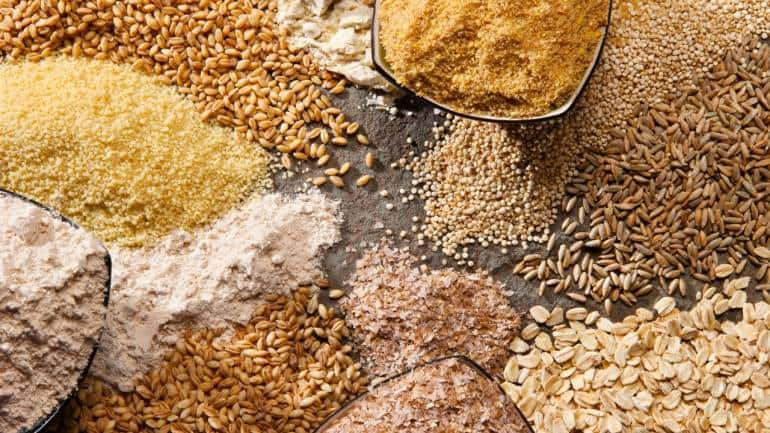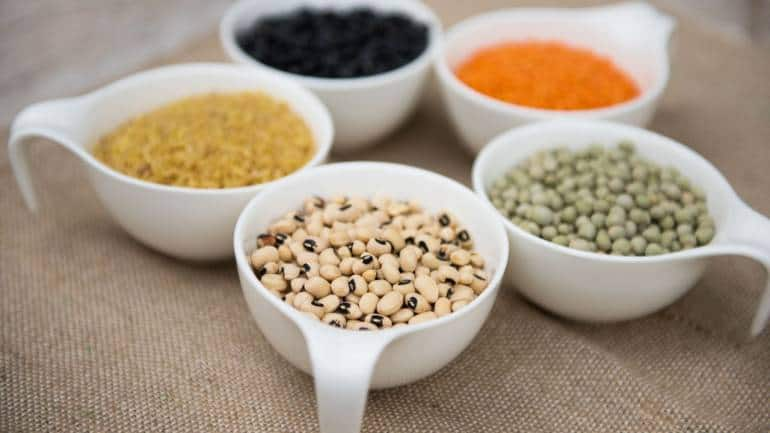Diabetes: 10 diet tips to control sugar spikes and lower glycemic index
What to eat: By adding these tips into your diet plan, you can effectively lower the glycemic index of your daily foods. Foods with a high GI can precipitate spikes in blood sugar, posing challenges if you are managing diabetes or looking at weight control.
1/11

In the quest of developing healthy eating habits, mastering the nuances of the glycemic index (GI) is paramount. The GI is a critical metric that gauges how swiftly carbohydrates in foods elevate blood sugar levels. Foods with a high GI can precipitate spikes in blood sugar, posing challenges for those managing conditions like diabetes or striving for weight control. Fortunately, there are practical approaches to attenuate the GI of your meals, primarily by integrating foods adept at preventing sugar spikes. Here are some expert-backed tips to help you navigate the realm of sugar-spiking foods and make smarter dietary choices (Image: Canva)
2/11

Choose whole grains: Opt for whole grains over refined grains whenever possible. Whole grains, such as brown rice, quinoa, oats, and whole wheat, contain more fibre and nutrients, which help slow down the absorption of sugar into the bloodstream, resulting in a lower glycemic index (Image: Canva)
3/11

Incorporate legumes: Legumes, including beans, lentils, and chickpeas, are excellent sources of protein and fibre. Adding legumes to your meals can help lower the overall glycemic index of your diet while providing sustained energy and promoting feelings of fullness.
4/11

Include healthy fats: Healthy fats, such as those found in avocados, nuts, seeds, and olive oil, can help reduce the glycemic response of a meal. Fats slow down digestion, preventing rapid spikes in blood sugar levels. Incorporate these fats into your meals in moderation for balanced nutrition (Image: Canva)
5/11

Add protein-rich foods: Protein-rich foods, such as lean meats, fish, tofu, and Greek yogurt, can help regulate blood sugar levels by slowing down the absorption of carbohydrates. Including a source of protein in each meal can contribute to overall glycemic control (Image: Canva)
6/11

Focus on non-starchy vegetables: Non-starchy vegetables, such as leafy greens, broccoli, cauliflower, and peppers, are low in carbohydrates and calories while being rich in fibre, vitamins, and minerals. These vegetables have a minimal impact on blood sugar levels and can be enjoyed in abundance (Image: Canva)
7/11

Limit added sugars: Be mindful of foods and beverages that contain added sugars, such as soft drinks, sweets, pastries, and processed snacks. These foods typically have a high glycemic index and can lead to rapid spikes in blood sugar levels. Opt for naturally sweet alternatives, such as fresh fruit, to satisfy your sweet tooth without the unwanted sugar rush.
8/11

Practice portion control: Pay attention to portion sizes to avoid overeating, which can contribute to spikes in blood sugar levels. Use smaller plates, bowls, and utensils to help control portion sizes and prevent excessive calorie intake (Image: Canva)
9/11

Choose low-glycemic sweeteners: When sweetening foods and beverages, opt for low-glycemic sweeteners such as stevia, monk fruit, or erythritol. These alternatives provide sweetness without causing significant spikes in blood sugar levels, making them suitable choices for individuals looking to manage their glycemic index (Image: Canva)
10/11

Eat balanced meals: Aim for balanced meals that include a combination of carbohydrates, protein, healthy fats, and fibre. This combination helps slow down the digestion and absorption of carbohydrates, resulting in a more gradual rise in blood sugar levels (Image: Canva)
11/11

Stay hydrated: Drinking an adequate amount of water throughout the day is essential for overall health and can also help regulate blood sugar levels. Aim to drink at least 8 glasses of water daily to stay hydrated and support optimal metabolic function (Image: Canva)
Discover the latest Business News, Budget 2025 News, Sensex, and Nifty updates. Obtain Personal Finance insights, tax queries, and expert opinions on Moneycontrol or download the Moneycontrol App to stay updated!






